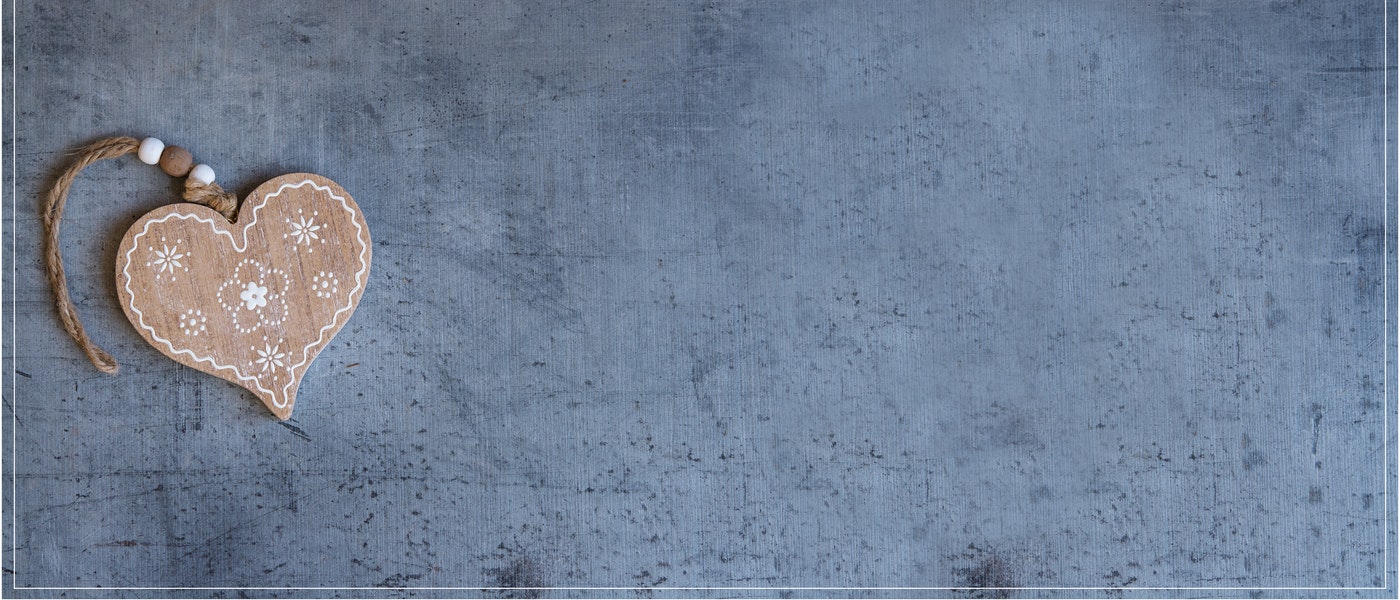

Being Compassionate in Islam
“And of His signs is that He created for you mates from your own selves that you may take comfort in them, and He ordained affection and mercy between you. There are indeed signs in that for a people who reflect”(30: 21).
One of the main objectives of marriage from the Islamic point of view is for the couples to find peacefulness. Peace is the very result of considering Allah in mind in every second of life. Being compassionate is a skill that couples should develop in order to make a better life. Islam aims to teach this skill to its followers and all other human beings.
Prophet Muhammad (PBUH&HP) said: “when a man expresses his love to his wife, the effect of such loving words will never fade from her heart”.
These words were uttered by the Holy Prophet (PBUH&HP) in a society in which women were not considered to deserve the least human rights. Moreover, it shows that Islam believes in the importance of expressing feelings to strengthen couples’ relationships and the idea of being compassionate.
Our fourth Imam, Imam Sajjad (AS), said: “It is your wife’s right on you to know that she brings calmness to you and she is a gift from Allah. Then, cherish her and treat her with kindness and tolerance”.
These sayings show the special attention of Islamic leaders to family and its role in the formation of society. It can be concluded that regarding the issue of being compassionate, building a peaceful society depends on having healthy and competent families.
The motto of Islam is, “First build your personality, then your family and finally your society”.
Imam Sadiq (AS) said: “The more one increases his/her kindness to his/her spouse, the more his/her faith will increase”.
What is the belief behind this large amount of recommendations on being kind and expressing feelings? How can Islam be blamed for promoting violence?
Being Compassionate & Prophet Muhammad (PBUH&HP)
To finish this article, It would be interesting to narrate a short story from the early Islamic era:
Prophet Muhammad (PBUH&HP) ennobled one of his loyal companions, named Sa'dIbnMa'az, in his funeral. Watching this scene, his mother said: “Oh my son, enjoy heaven”. Prophet (PBUH&HP) said to Sa'd’s mother: “Do not prejudge. Your son is suffering in his tomb”. Other companions asked in wonder, “why is he suffering in his tomb while you respected and ennobled him this much? He added because he was bad-tempered with his family.
Allah is Unique in Kindness. Kindness is a sign of wealth for which you sometimes do not need to spend a penny, but it is more valuable than large amounts of money.
Being compassionate
Share This Article

Children's Rights in Islam From Conception to Birth
The respectability of human rights begins with the way that society treats its children. Children's rights in Islam are not separated from human rights because children are the future generation. Our children are trust and assets for us from God. Furthermore, it is mentioned in the Eighteenth Chapter of the Quran (Surah Al-Kahf), verse 46 that children are an adornment of the worldly life.
The religion of Islam pays special attention to the rights of children and to the worthy manner to raise them. As the Prophet (PBUH) of Islam has asserted: "There are as many rights of children necessary upon parents as there are rights of parents necessary upon children."
It is worth mentioning that in this article, by children's rights in Islam we mean their rights over their parents. Admittedly, rights and duties are inter-related between parents and children, and children's rights in Islam are the duty of parents.
Accordingly, to fulfill children's rights in Islam, some parental obligations through specific guidelines are specified. Following guidelines are parental duties towards children (as the Child's Rights) in some specific ages:
Children's Rights in Islam:
1. Upbringing and Hygiene of Fetus (Before conception and during pregnancy)
Children's rights in Islam begin before conception and will continue during pregnancy. In this period, thoughts, actions, and nutrition of the parents (especially the mother) have an impact on the spirit, essence, character, and health of the unborn child; the child is like an organ of the mother and obtains all the necessary factors of development from her.
Emotional and respectful relations between parents and also mental relaxation of the mother are significant in this stage. Peace of mind has been affected by feeling assured in life.
Moreover, a healthy relationship between parents and a strong physical attraction is beneficial to conceive a pure and good child, while fear and worry will have negative consequences on the child.
One of the effective ways, to attain peace and confidence, is the remembrance of God [i].
Therefore, the mother should try her best to keep herself occupied with religious acts such as reading Quran, praying, and staying away from fruitless activities that will not benefit her or the child growing inside her.
On the other hand, the food individual eats not only has a high impact on the physical aspect of a person but on the nonphysical part as well. Some foods have also been recommended explicitly by Islamic teachings for a healthy, beautiful, and virtuous child. For instance, it is narrated from Prophet Muhammad (PBUH&HP): “Eating pomegranate is a cause of increased sperm production for men and makes the child beautiful and healthy as well” [1].
Another Hadith from Imam Sadeq (AS) narrates that “Anyone who eats quince on an empty stomach, the source of his seed production (sperm) becomes pure and healthy, and his child will be beautiful and decent” [2].
It is important to note that many acts are not recommended during conception:
Prophet Muhammad (PBUH&HP) said: “Speaking during the actual act, leads to confusion in the child” [3]. And: “Making love when the man is muhtalim (i.e., become in the state of Janabat [ii] during his sleep) and before doing ablution (Wudu or Ghusl), as this results in the child becoming insane” [4].
The above narrations and recommendations are just some of these factors that may affect the conceived child. It is notable that many factors contribute to the physical and psychological make-up of the child, such as inherited characteristics, geographical terms, and social status, etc. Giving charity, reciting the Quran, and praying are strictly effective to avert possible negative consequences.
2.The recitation of The Call to Prayer (Adhan and Iqama) in the ear of a newborn (At birth)
In the earliest time possible, a newborn child should hear the remembrance (Zikr) of Allah upon his/her arrival into this world. Adhan should be said in the right ear, and Iqama should be said in the left one by a competent person such as the father [iii] [5].
Notes:
[i] “Those who have faith and whose hearts find rest in the remembrance of Allah.’ Behold! The hearts find rest in Allah’s remembrance!” (13:28)
[ii] "Janabat" is a ritual impurity caused by the discharge of semen or by sexual intercourse, and the person on whom ghusl janabat becomes wajib is known as "junub" [6].
[iii] Prophet Muhammad (PBUH&HP) said: “Whenever you had a newborn boy or girl, say Adhan to his or her right ear and also say Iqamah in the left ear. So the Satan will not harm the baby".
References:
- Wasāil ash-Shī~a, vol. 25, p. 104, no. 31499
- Biĥār al-Anwār, vol. 81, p.101.
- Al-Khisal, p.520.
- lal al-sharayi, p.514.
- Tuhaf al-'uqul. p. 13.
- Sayyid Muhammad Rizvi, Marriage and Morals in Islam, p. 64.
Read More

How do Muslims treat the elderly?
Islam is a comprehensive way of life, and one of the characteristics through which it is distinguished from many other religions is that it encompasses every aspect of a Muslim’s life. Islam teaches Muslims to respect the elderly whether they are parents, relatives, or any other old person. This is because caring for the elderly in Islam is considered an important obligation through which one seeks closeness to Allah.
Status of the Elderly in Islam
There is no doubt in the special status of the elderly in Islam, as there are several texts, which urge Muslims to respect and honor them. An elderly person has a high status before Allah and His Prophet particularly if he is a believer.
In the Quran, Allah says:
“ And whomever We give a long life, We cause him to regress in creation. ; …?”(36:68)
From the verse, it is obvious that the inception of old age is a period of decline – decline comes partly from physical and partly from psychological factors. Thus, at this critical stage of life, Islam recommends adequate caring for them because they are like a prophet in a family and a blessing in the society. The Holy Prophet (PBUH&HP) said:
“The elderly among his family is like a Prophet among his community” [1]
Moreover, honoring the elderly is synonymous with honoring Allah and His Prophet. In this regards, the Holy Prophet (PBUH) was reported to have said:
“Honor the elderly because honoring them is part of honoring Allah” [2]
Meanwhile, Imam Sajjad (AS) while describing the right of the elderly in his book ‘Treatise on rights’ said:
“The right of him who is older than you is that you show reverence toward him because of his age and you honor him because he entered Islam before you. You leave off confronting him in a dispute, you do not precede him in a path, you do not go ahead of him, and you do not consider him foolish. If he should act foolishly toward you, you put up with him, and you honor him because of the right of Islam and the respect due to it”[3].
Similarly, Islam commands a Muslim to honor and respect senior citizens because honoring the elderly will guarantee the protection against every calamity on the Day of Resurrection. The Holy Prophet (PBUH&HP) said:
“Whoever honors the gray hair due to an old age, Allah will definitely save him from the panic of the Day of Judgment”[4].
Manners of Handling the Elderly in Islam
Islam is the fountain of mercy, sentiments, and sympathy. Hence, it is not strange to see Islam paying attention to the elderly and instructing a Muslim to give them compassion. There are texts from the Quran, the sayings of the Holy Prophet (PBUH&HP) and his pure Household (AS) on how a Muslim should treat an elderly person. These include:
Always honors and be merciful to the elderly. For respecting them is considered a form of worship in the sight of Allah while disrespecting them is absolutely rebuked, and it is against the pristine teachings of Islam.
In case of necessity, always render assistance to the elderly [5].
Consult the elderly for guidance on personal and collective decisions, for they are guides in a family and the society similar to a Prophet of God.
Never insult or scold an elderly. Because a disrespect to them is reprimanded by Allah, the Holy Prophet (PBUH&HP) and his pure Household (AS).
Allow our elderly to live with us. It is a bad habit to send them to nursing homes just because they are considered as nuisances to the society.
Conclusion
Respecting the elderly and honoring them are among the characteristics of a Muslim society. Therefore, it is expected of every Muslim to imbibe the culture of respecting old people whether they are parents, relatives or not. Likewise, we should always acknowledge and appreciate their presence within us especially our parents. The presence of the elderly either in the family or the society is a blessing from Allah. Their presence will bring peace, happiness, concord, tranquility, mercy, and reward from Allah. It is indeed an un-Islamic practice to consider our elderly a public nuisance and eject them from our midst.
References:
- Bihar al-Anwar, Vol. 72, P. 137.
- Wasail al-Shiah, Vol. 12, P. 100.
- Treaties on Rights, Right 44 (i.e. The right of the one older than you)
- Mustadrak Wasail, Vol. 8, P. 391.
- Al-Kafi, Vol. 2, P. 165; Jami at-Tirmidhi, Hadith 1919.
Read More

